Advanced Engineering Program in AI Agent Workflows and Agentic Systems Development
Orchestrate and scale strategies trusted by the enterprise AI teams
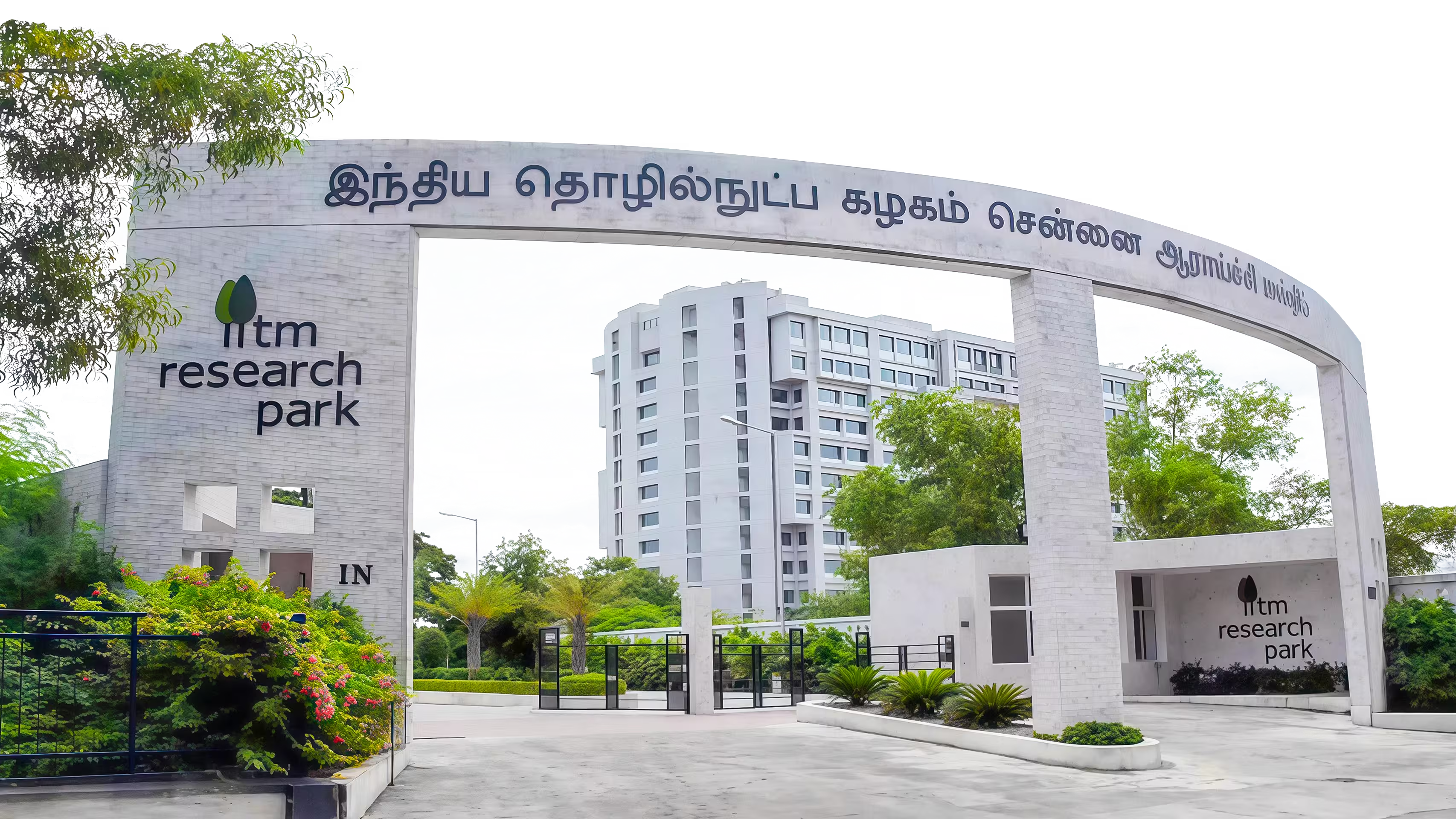
Start Date
29th November, 2025
Duration
7 Months | 140+ Hours
Course Fee
₹84,000 + GST
No. of Seats Left
15
Application Deadline
19th October, 2025
This Program Shapes Workflow-First AI Leaders
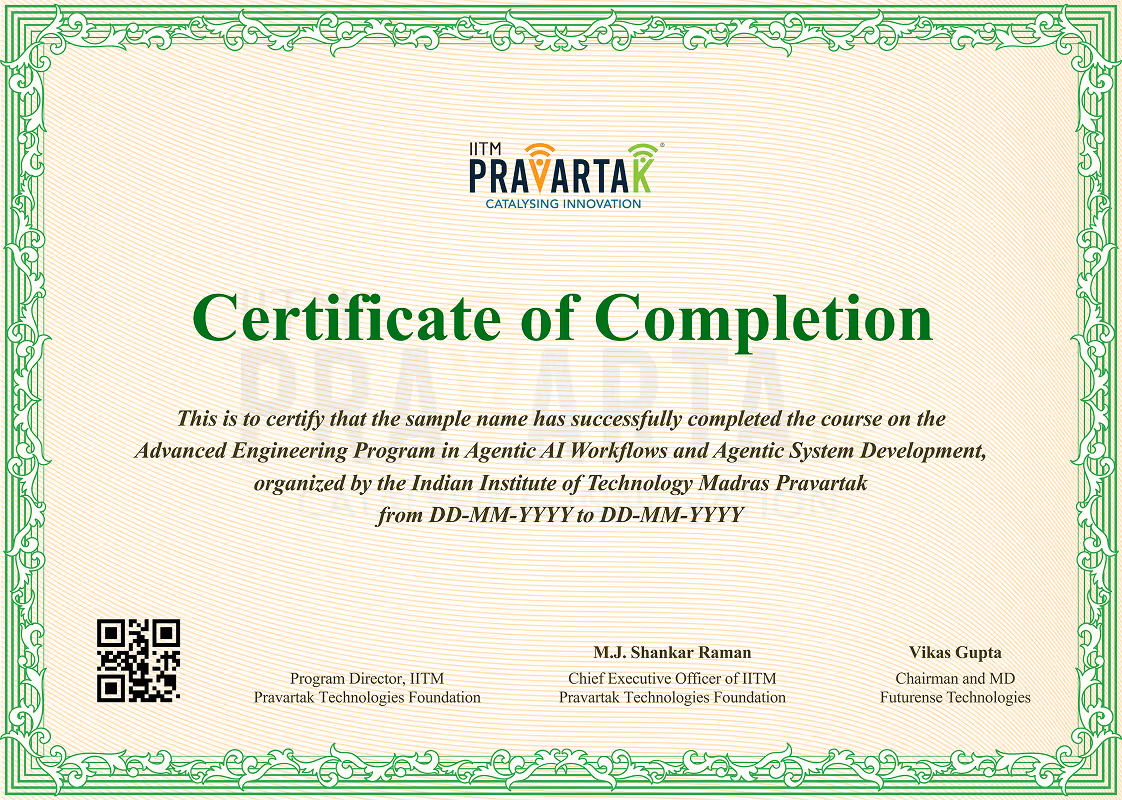

This Program Shapes Workflow-First AI Leaders!
This Program is designed to move you beyond building agents, into designing enterprise-ready workflows where they work. It’s more about mastering multi-agent orchestration, context engineering, and governance, as well as integrating agents seamlessly with real business systems.
About IITM Pravartak
IITM Pravartak Technologies Foundation is the Technology Innovation Hub of IIT Madras, established under the Department of Science and Technology, Government of India. Embedded within the IITMRP ecosystem, it combines IIT Madras’ renowned faculty, cutting-edge labs, and specialised research facilities to drive skilling, innovation, and incubation.
Working at the intersection of academia, research, and industry, IITM Pravartak fosters the adoption of deep technology, nurtures next-generation talent, and enables real-world impact.
IIT Madras Faculty
The IIT Madras faculty are globally recognized for their contributions in AI, product design, and management. With expertise spanning AI-powered systems to ethical AI frameworks, they combine research leadership with real-world application. As part of this program, you’ll learn directly from these experts through immersive, hands-on sessions, gaining the skills to design and scale AI-infused products that are adaptive, ethical, and industry-ready.
Traditional AI Agent vs. IITM Pravartak: AI Agent Workflows and Agentic Systems Development
Dimension
IITM Pravartak: AI Agent Workflows & Systems
Traditional AI Agent Courses
How You Go From Learning to orchestrating enterprise-grade multi-agent.. in Just 7 Months
Module 1: Building Foundations for AI Agents with Deep Learning & NLP
Module 1: Building Foundations for AI Agents with Deep Learning & NLP
- Overview of Deep Learning and Neural Networks
- Structure of neural networks and backpropagation
- Key activation functions (ReLU, Sigmoid, Tanh)
- Training neural networks and hyperparameter tuning
- Introduction to NLP and its connection with AI agents
Module 2: Exploring NLP & Generative AI for Complex Problem Solving
Module 2: Exploring NLP & Generative AI for Complex Problem Solving
- NLP techniques: tokenization, stemming, lemmatization, TF-IDF
- Word embeddings: Word2Vec, GloVe- Generative AI: GANs, VAEs
- Applications of generative models in content creation (text, art, music)
- Introduction to transformers and GPT
Module 3: Leveraging Large Language Models (LLMs) for AI Agents
Module 3: Leveraging Large Language Models (LLMs) for AI Agents
- Introduction to Large Language Models (LLMs)
- Transformer architecture and attention mechanisms
- Pre-training and fine-tuning LLMs
- Use cases: GPT, BERT, T5, and more
- LLMs vs. traditional rule-based systems
Module 4: Transitioning from AI Models to AI Agents with Deep Learning and LLMs
Module 4: Transitioning from AI Models to AI Agents with Deep Learning and LLMs
- Understanding AI agents and their evolution- Key differences between AI models and agents
- Using neural networks and LLMs in agent design
- Contextual decision-making for agents
- AI agent frameworks and tools
Module 5: System Thinking Foundation Product Design
Module 5: System Thinking Foundation Product Design
- Holistic analysis of interconnected workflows
- Identifying feedback loops
- Mapping dependencies; Emergent behavior in MAS
- Balancing optimization across subsystems
Module 6: Designing Workflows and Systems for Agents
Module 6: Designing Workflows and Systems for Agents
- Problem immersion; Journey mapping (As‑Is → To‑Be)
- Leverage point discovery
- KPI & guardrail definition
- Service blueprint creation
Module 7: MAS Design
Module 7: MAS Design
- Hierarchical
- Manager‑worker
- Peer‑to‑peer
- Blackboard
- Contract‑net
- Debate/hybrid human‑agent
Module 8: Exploring Context Management in Multi-Agent Systems
Module 8: Exploring Context Management in Multi-Agent Systems
- Understanding context in AI workflows
- Passing context between agents
- Context engineering for task completion
- Designing inputs/outputs for multi-agent workflows.
Module 9: Designing and Coordinating Multi-Agent Systems
Module 9: Designing and Coordinating Multi-Agent Systems
- Multi-agent system architecture
- Agent coordination and task delegation
- Message passing between agents
- Defining agent roles within workflows.
Module 10: Optimizing Agent Workflows for Scalability and Efficiency
Module 10: Optimizing Agent Workflows for Scalability and Efficiency
- Workflow design templates
- Task decomposition and agent interaction- Process mapping and optimization
- Designing scalable workflows for complex systems.
Module 11: Prototyping Multi-Agent Systems for Real-World Applications
Module 11: Prototyping Multi-Agent Systems for Real-World Applications
- Design-first approach to multi-agent systems
- Integrating agent workflow design into prototyping
- Connecting agents within workflows to simulate real-world applications.
Module 12: Integrating Real-World Tools for Agentic Workflows
Module 12: Integrating Real-World Tools for Agentic Workflows
- Integrating real-world tools with agentic workflows
- Leveraging memory systems
- Using external APIs and data sources in multi-agent workflows
- Scaling workflows with advanced tools.
Module 13: Injecting Context into Agent Workflows for Dynamic Handling
Module 13: Injecting Context into Agent Workflows for Dynamic Handling
- Integrating real-world tools with agentic workflo
- Dynamic input handling
- Context injection techniques for adaptive agent workflows
- Role-based prompts and task-specific agent communication.
Module 14: Integrating Real-World Tools for Agentic Workflows
Module 14: Integrating Real-World Tools for Agentic Workflows
- Business-driven multi-agent system automation
- Automating complex business workflows with multiple agents
- Ensuring smooth coordination and context passing.
Module 15: Monitoring and Managing Multi-Agent Systems in Real-Time
Module 15: Monitoring and Managing Multi-Agent Systems in Real-Time
- Understanding real-time monitoring of multi-agent workflows
- Using logging and monitoring tools to track agent performance
- Debugging agent communication and task delegation errors.
Module 16: Integrating Multi-Agent Systems into Enterprise Workflows
Module 16: Integrating Multi-Agent Systems into Enterprise Workflows
- Integrating agent systems into business enterprise workflows
- Bridging agents with enterprise resource planning (ERP) and customer relationship management (CRM) systems.
Module 17: Advanced Context Engineering for Complex Systems
Module 17: Advanced Context Engineering for Complex Systems
- Deep dive into context engineering for multi-agent systems
- Handling complex context switches in large-scale workflows
- Adaptive task handling.
By the End, You’ll Be Able to Do All This
While mastering 30+ tools


.png)
















Welcome to the AI Clinic
Your Career, Our Commitment
From Day 1 to your next role, we guide you at every step.
Diagnostic Test & Evaluations
Start with a test and multiple evaluations to sharpen product thinking and AI skills.

Live Industry Sessions
2-3 monthly Chai Talks, AI workshops, and career discussions with industry leaders.

Exclusive 1:1 Mentorship
Offered for top performers meeting benchmarks, includes personal mentorship and mock interview.

Futurense Breakfast Club
Weekly alumni meetups with case discussions and hiring lead exchanges.

Real Projects at AI Clinic
Work on live RFPs and challenges to build a strong industry-relevant portfolio.

Resume That Gets Shortlisted
Workshops & expert reviews focused on creating resumes tailored for leadership roles.

Mock Interviews & Feedback
Simulated interviews with actionable performance feedback.
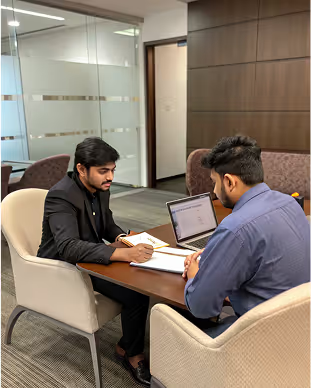
Built for People Like You?
Educational Qualification
Bachelor’s degree (minimum 3 years) in Computer Science, IT, Engineering, Mathematics, or a related fields.MCA / M.Sc / M.Tech candidates with exposure to technology, analytics, or systems are also eligible
Work Experience
Minimum 1 year of experience in product management, software development, enterprise/solution architecture, data science, ML engineering, automation & process excellence, or consulting.
Freshers
Exceptional fresh graduates with strong programming skills and aptitude for AI workflows may be considered via screening.
Prior Knowledge
Familiarity with programming (Python preferred), AI concepts, APIs, and data-driven systems.
Selection Process
Clear a pre-screen exam testing programming fundamentals, logic, and workflow/AI readiness.

Ideal For





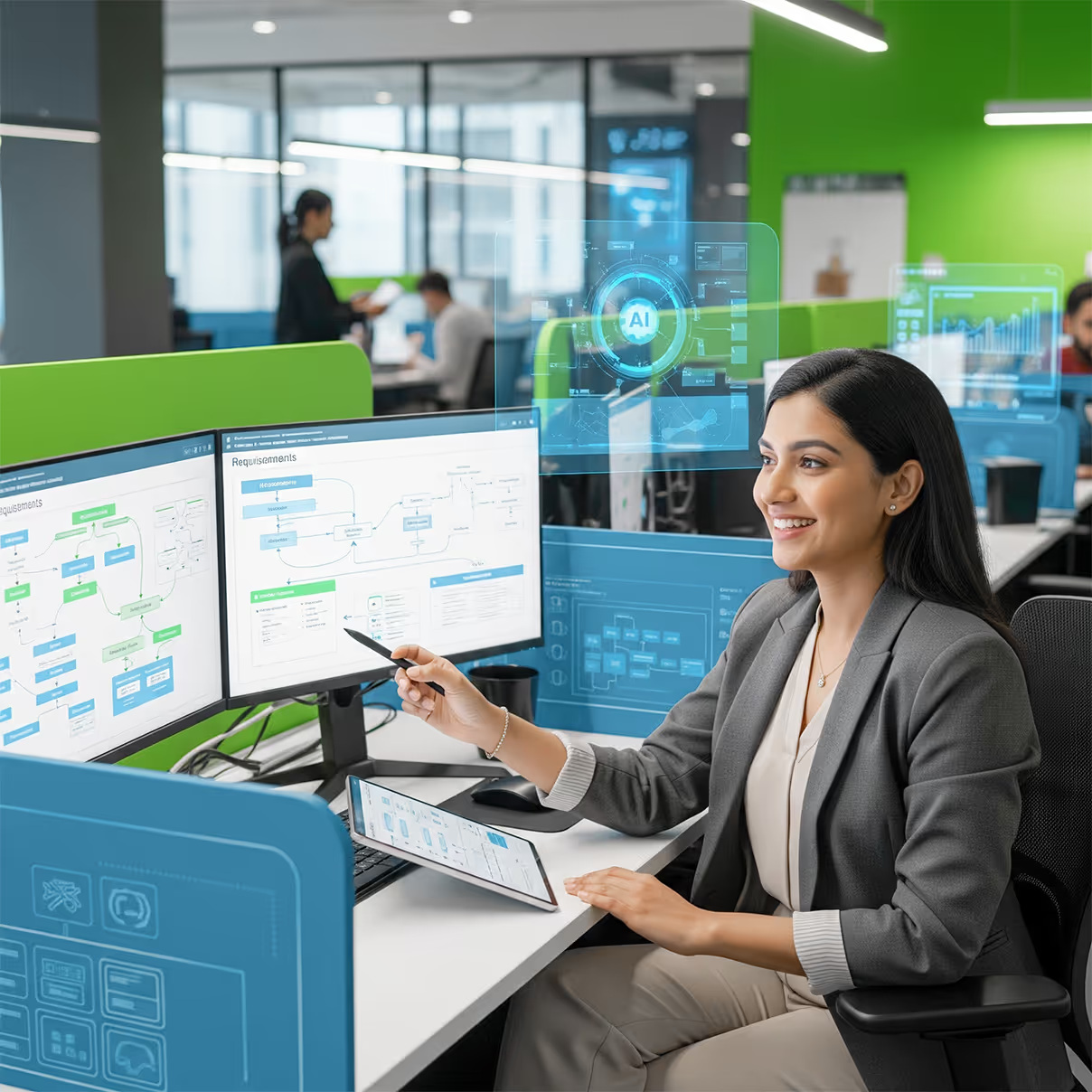

Qualifying Test
What You’ll Be Tested On
Important Guidelines
- 75 Minutes
- Sectional cutoff for Areas to be tested.
- No Sectional Cutoff for Time.
- Students can answer any section in any order.
Roles Thatʼll Be Looking for You
AI Product Analyst / Associate Product Manager
₹8 - 12
Junior AI Workflow Analyst
₹7 - 10
AI Agent Developer / Associate Engineer
₹8 - 12
Junior MAS Engineer (Multi-Agent Systems)
₹9 - 13
Context Engineering Associate
₹8 - 12
Associate AI Process Designer / Workflow Analyst
₹7 - 11
Automation & AI Ops Associate
₹6 - 10
AI Workflow Governance Specialist/ AI Workflow Engineer
₹15 - 28
Enterprise AI Integration Architect(Senior Role)
₹20 - 35
AgentOps
Engineer
₹12 - 22
LangChain Developer
₹15 - 30
AI Product Manager
₹15 - 35; up to ₹60 L+ at top firms
Multi-Agent Workflow Architect
₹25 - 50
MAS Orchestration Engineer
₹20 - 40
Agentic Process Designer
₹18 - 35
Your Path to Becoming a Workflow-First AI Leader

Step 1
Submit Your Application
Complete the online application form with your academic and professional details.
Step 2
Application Review and Eligibility Criteria Approval
Your profile is reviewed to ensure it meets the program’s educational and background requirements.
Step 3
Appear for the Qualifying Test
Take a short test assessing product thinking, logical reasoning, and familiarity with basic design/analytics concepts.
Step 4
Secure Your Seat
Confirm your enrolment with the application processing fee.
Step 5
Receive Your Offer Letter
Get an official admission confirmation from IITM Pravartak.
Step 6
Begin the AI & Workflow Bridge Course
Start with a sponsored foundation module covering Python essentials, agent fundamentals, and workflow basics.
Step 7
Start Your AI Agent Workflows Journey
Engage in weekend live sessions, hands-on labs, and multi-agent simulations with IIT Madras faculty and industry mentors.
Step 8
Capstone & Showcase
Design and deploy an enterprise-ready agentic workflow project, reviewed by IIT faculty and Futurense Leadership Council mentors.

Fee Structure
Upfront Payment
EMI Plan (via NBFC Partners)
Application Token
Bridge Course Fee
Certification Fee
Total
- An additional ₹10,000 will be applicable if you opt for the Campus Immersion (Optional).
- Deserving candidates opting for the upfront payment plan may be eligible for a scholarship of up to ₹10,000.
- The EMI amount varies depending on the chosen tenure.
Low-Cost EMI Options
6, 9, 12 & 24 months tenure available
NBFC Partners
Propelld, Avanse, Northern ARC and more.
Payment Modes
UPI, Netbanking, Credit/Debit Cards
Led by the Futurense Leadership Council (FLC)
Industry leaders from the world’s top AI-first enterprises are now guiding your journey to become an AI-first Cybersecurity Expert.
A V Rahul
Director, Analytics, - Barracuda

Aditya Khandekar
President, Corridor Platforms

Akshay Kumar
Research & Analytics Leader

Alok Tiwari
Director of Analytics, Junglee Games

Anand Das
Chief Digital & AI Officer, TVS Motors

Aneel kumar
Global Chapter Leader - ICSS, DD&T

Anirban Nandi
Head of AI Products & Analytics (Vice President), Rakuten India
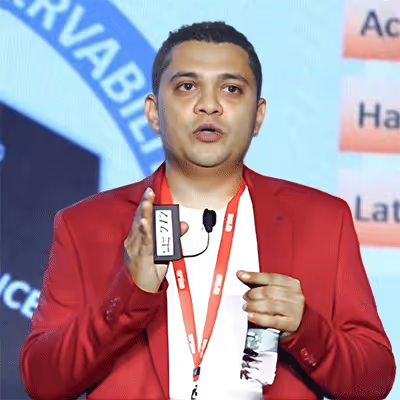
Ankit Mogra
Director – Insights & Analytics, Ather Energy

Anupam Gupta
Independent Consultant – AI/ML Product Development, Amplify Health
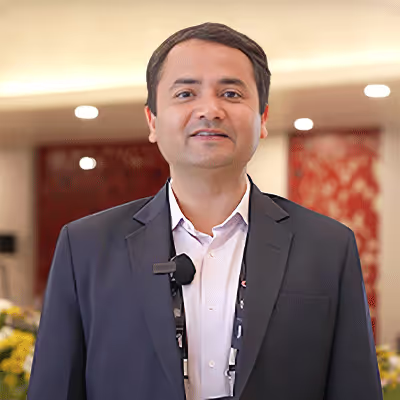
Arpit Agarwal
Data Science Manager, Google

Arvind Balasundram
Executive Director, Commercial Insights & Analytics

Ashish Dabas
Vice President, Capital One
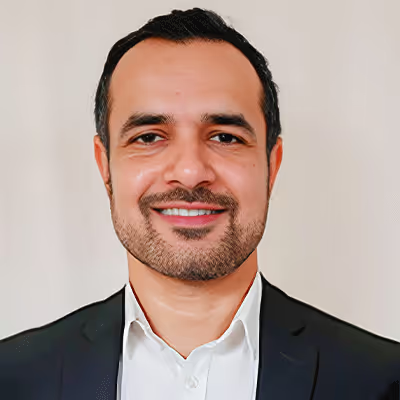
Bhairav M
Senior Manager Data Science and Product Management

Bhargab Dutta
Chief Digital Officer, Centuryply
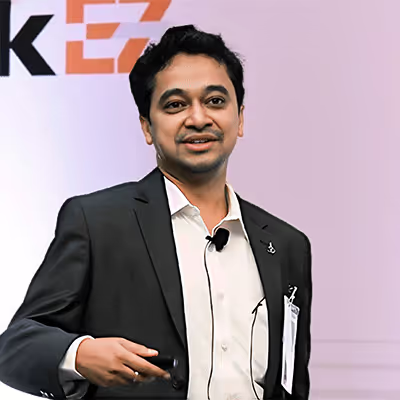
Deepa Mahesh
Head of Strategy & Operations, Board Member

Divesh Singla
SVP, Global Operations Services and Managing Director, India & Philippines, SignantHealth

Indrani Goswami
Director of Analytics, NYKAA

Ishu Jain
Head of Analytics

Kaushik Das
Managing Director, JCPenney

Krithika Muthukrishnan
Chief Data Science Officer, Scripbox

Madhu Hosadurga
Global Vice President, Enterprise AI, Schneider Electric

Madhurima Agarwal
Managing Director - Microsoft for Startups

Monica S Pirgal
Chief Executive Officer, Bhartiya Converge

Muthumari S
Global Head of Data & AI Studio

Nithya Subramanian
Senior Director Data & AI COE - Best Buy

Nitin Srivastava
Global Head of Data and Analytics, Dr. Martens plc

Pankaj Rai
Group Chief Data and Analytics Officer, Aditya Birla Group

Pankaj Srivastava
Partner, PwC

Praveen Sathyadev
Head - EU/UK Business Growth (VP) - Analytics, Insights and AI, Course5i

Ruchika Singh
Director, Data Science & Insights, Spotify

Satyakam Mohanty
Founder & Managing Partner, Wyser

Saurabh Agarwal
Chief Executive Officer

Saurabh Kumar
Director - Data Engineering

Sharmistha Chaterjee
Executive Engineering Manager - Head of Software and Systems Engineering, Commonwealth Bank

Shirsha Ray Chaudhuri
Director of Engineering

Srini Oduru
Head of IT Delivery and Operations, Cervello India

Sulabh Jain
Chief Analytics Officer

Sumon Mal
Head of Backend Engineering, Sony LIV

Supria Dhanda
Co-Founder & Managing Partner, Wyser

Swati Jain
Partner - Digital, AI & Analytics, Deloitte

Tushar Chahal
Chief Technology Officer, Numisma Bank

Tushar Sahu
Director Engineering, Google

Vidhi Chugh
AI Executive | Microsoft MVP

Vishal Nagpal
Director of Data and AI at Best Buy

Vishal Nagpal
Director of Data and AI at Best Buy

Vidhi Chugh
AI Executive | Microsoft MVP

Tushar Sahu
Director Engineering, Google

Tushar Chahal
Chief Technology Officer, Numisma Bank

Swati Jain
Partner - Digital, AI & Analytics, Deloitte

Supria Dhanda
Co-Founder & Managing Partner, Wyser

Sumon Mal
Head of Backend Engineering, Sony LIV

Sulabh Jain
Chief Analytics Officer

Srini Oduru
Head of IT Delivery and Operations, Cervello India

Shirsha Ray Chaudhuri
Director of Engineering

Sharmistha Chaterjee
Executive Engineering Manager - Head of Software and Systems Engineering, Commonwealth Bank

Saurabh Kumar
Director - Data Engineering

Saurabh Agarwal
Chief Executive Officer

Satyakam Mohanty
Founder & Managing Partner, Wyser

Ruchika Singh
Director, Data Science & Insights, Spotify

Praveen Sathyadev
Head - EU/UK Business Growth (VP) - Analytics, Insights and AI, Course5i

Pankaj Srivastava
Partner, PwC

Pankaj Rai
Group Chief Data and Analytics Officer, Aditya Birla Group

Nitin Srivastava
Global Head of Data and Analytics, Dr. Martens plc

Nithya Subramanian
Senior Director Data & AI COE - Best Buy

Muthumari S
Global Head of Data & AI Studio

Monica S Pirgal
Chief Executive Officer, Bhartiya Converge

Madhurima Agarwal
Managing Director - Microsoft for Startups

Madhu Hosadurga
Global Vice President, Enterprise AI, Schneider Electric

Krithika Muthukrishnan
Chief Data Science Officer, Scripbox

Kaushik Das
Managing Director, JCPenney

Ishu Jain
Head of Analytics

Indrani Goswami
Director of Analytics, NYKAA

Divesh Singla
SVP, Global Operations Services and Managing Director, India & Philippines, SignantHealth

Deepa Mahesh
Head of Strategy & Operations, Board Member

Bhargab Dutta
Chief Digital Officer, Centuryply

Bhairav M
Senior Manager Data Science and Product Management

Ashish Dabas
Vice President, Capital One

Arvind Balasundram
Executive Director, Commercial Insights & Analytics

Arpit Agarwal
Data Science Manager, Google

Anupam Gupta
Independent Consultant – AI/ML Product Development, Amplify Health

Ankit Mogra
Director – Insights & Analytics, Ather Energy

Anirban Nandi
Head of AI Products & Analytics (Vice President), Rakuten India

Aneel kumar
Global Chapter Leader - ICSS, DD&T

Anand Das
Chief Digital & AI Officer, TVS Motors

Alok Tiwari
Director of Analytics, Junglee Games

Akshay Kumar
Research & Analytics Leader

Aditya Khandekar
President, Corridor Platforms

A V Rahul
Director, Analytics, - Barracuda


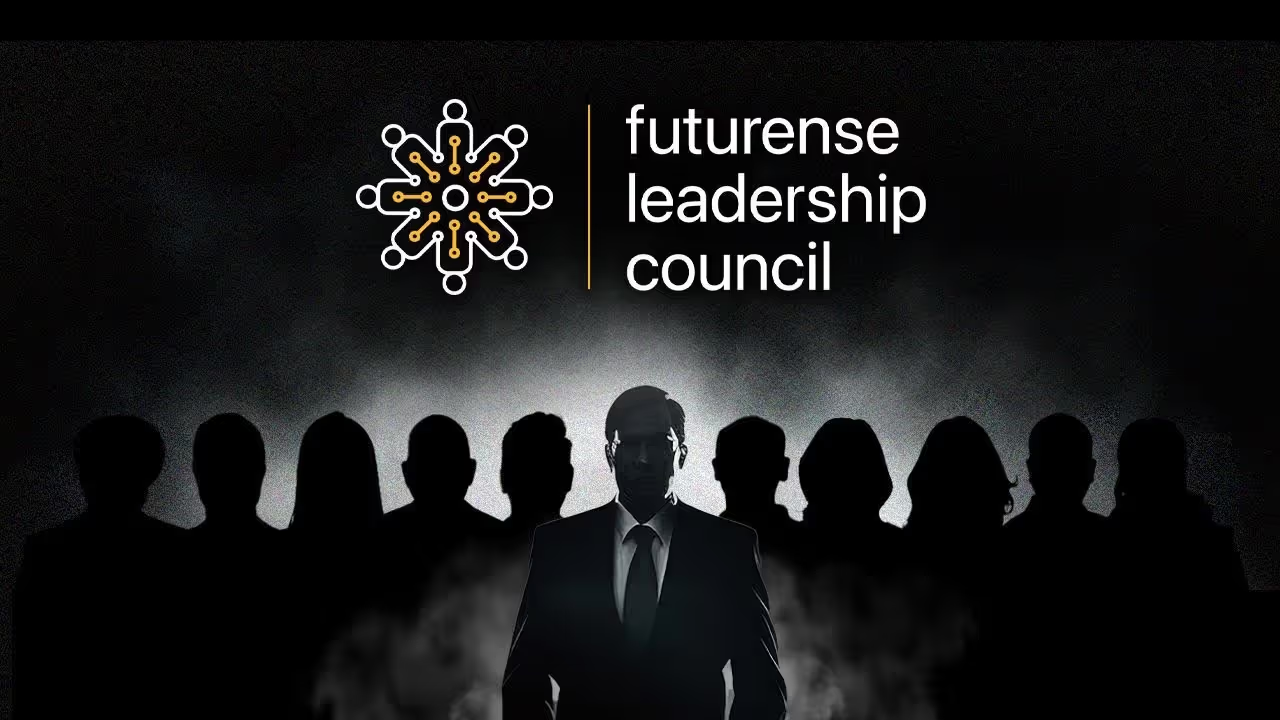
Frequently Asked Questions
We know you might have some questions before getting started in our platform
What is the name of the certificate program, and which IIT offers it?
The program is called Advanced Engineering Program in AI Agent Workflows and Agentic Systems Development, offered by IITM Pravartak Centre of Excellence (IITM Pravartak CoE)
What is the duration of the program, and when does the first cohort begin?
The duration is 7-9 months (126+ hours). Batch commerce on 4th October, 2025
What are the eligibility criteria for this program, and who should ideally enroll?
This program is ideal for professionals with 0–1+ years of experience in Python development, backend engineering, ML workflows, or automation, who want to design, orchestrate, and deploy production-grade multi-agent systems using LLMs and toolchains like LangChain, CrewAI, and AutoGen.
How can I apply to the Pravartak Certificate in AI Agent Workflows and Agentic Systems Developer?
Click on Apply now and fill form
When will the application process to the program start?
The application process for Advanced Certificate, IITM Pravartak Program has already begun.
What is the program's fee, and what financing options are available?
The program fee is ₹84,000 + 18% GST. Loan options are available with low cost EMIs
In addition, an amount of ₹10,000 (tentative) towards Immersion Charges shall be paid separately by the candidate. This amount is not included in the above-mentioned fees.
Note: Deserving candidates may be eligible for a scholarship of up to ₹10,000.
Is there a selection process?
Yes. Admission to the program requires clearing a pre-screening test and meeting the eligibility criteria
What are the documents to be submitted for application?
1. Aadhar Card
2. DOB (in correct format and as per Aadhar Card - DD/MM/YYYY)
3. Resume
4. Graduation Marksheet and Degree (cross-verified with scores entered in the application portal)
5. 10th Marks (cross-verified)
6. 12th Marks (cross-verified)
7. Previous Experience Letter, Offer Letter, and Salary Slip
8. NOC (mandatory for M.Tech applicants; self-declaration required for PGD applicants)
Will there be any pre-screen exams for enrolling in the Program?
Yes, there will be a pre-screening test
Should I have experience in coding to qualify the pre-screening exam?
Not mandatory program focuses on AI product strategy and management rather than deep coding
How is the teaching format structured for this hybrid program?
- Live Online Sessions
- 3-day IITM Pravartak's On-Campus Immersion at the end of the program.
What if I can t take 3-day of leave at a stretch from my office for the Campus Immersion?
The campus immersion is at the end of the program, allowing advance planning
Will there be any additional cost for attending the optional 3-day IITM Pravartak Campus Immersion?
Yes. ₹10,000 per candidate per immersion.
Will hostel accommodation be provided for outstation candidates from different states during immersion?
Yes, accommodation will be arranged (subject to availability)
What are some practical projects or hands-on learning outcomes included in the course?
Capstone project designing a production-grade agentic AI workflow, prompt engineering exercises, tool integration labs, and autonomous workflow simulations
What are the key modules in the program, starting from traditional AI to building multi-agent systems?
1. LLM Fundamentals & Prompt Engineering
2. Context Engineering & Memory Management
3. Multi-Agent System Design (LangChain, CrewAI, AutoGen)
4. Tool Integration & API Connectivity
5. Workflow Orchestration
6. AI Evaluation & Guardrails
7. Deployment & LLMOps
8. Capstone Project
What is the significance of teaching multi-agent systems and agent collaboration in the program?
It allows learners to design scalable, autonomous AI solutions capable of performing complex, coordinated tasks across multiple systems.
Who is the program coordinators, and why is their expertise significant?
How do industry leaders and the Futurense Leadership Council (FLC) contribute to the program?
Industry experts from Google, Microsoft, Infosys, Lenskart, AmEx, and more teach live sessions.
The Futurense Leadership Council offers:
1. Masterclasses
2. Mentorship
3. Real-world MarTech case walkthroughs
50% of sessions are taught by industry faculty, ensuring applied learning
What areas of AI does this program cover, and how does it integrate traditional AI, generative AI, and agentic AI?
The program covers:
1. Traditional AI: Covers ML workflows and automation principles
2. Generative AI: Focus on LLM prompting, context engineering, and integration with AI toolchains.
3. Agentic AI: Specialization in multi-agent orchestration, autonomous workflows, and AI system deployment.
What tools and platforms are covered in this program?
LangChain, CrewAI, AutoGen, Guardrails, OpenRouter, GPT-4, Claude, GitHub Copilot, VSCode, Promptfoo, PromptArmor.
Why is agentic AI called the next big thing in AI technology?
Because it enables autonomous, multi-agent systems that can make decisions, execute tasks, and learn from outcomes — driving automation beyond traditional AI capabilities.
What makes this certificate program particularly suitable for engineers and tech professionals?
It provides hands-on training in multi-agent orchestration, tool integration, and deployment, making it ideal for engineers looking to transition into AI systems design and automation roles
How does the program enable participants to specialize in their specific engineering domains?
By providing modular training and toolkits that can be adapted for different domains like fintech, e-commerce, SaaS, and manufacturing
What is the difference between traditional AI, generative AI, and agentic AI?
1. Traditional AI: Uses structured data for fixed tasks.
2. Generative AI: Creates text, images, code (e.g., ChatGPT, Claude)
3. Agentic AI: Autonomous agents that make decisions, adapt, and operate independently.
How are agentic AI systems used across industries like healthcare, manufacturing, and telecom?
1. Healthcare: Automates diagnosis and treatment recommendations.
2. Manufacturing: Enables process optimization and predictive maintenance.
3. Telecom: Powers AI-driven customer support and network optimization
What job roles can participants expect to pursue after completing this program?
1. AI Agent Workflow Engineer
2. Agentic AI Systems Developer
3. LLM Application Developer
4. AI Automation Engineer
5. AI Integration Specialist
How does having skills in generative AI and agentic AI impact salary and job prospects?
It positions professionals for high-demand, specialized AI roles with significantly higher earning potential compared to general AI roles.
How does this program align with the rapid adoption of generative AI by companies like Infosys, TCS, and startups?
It trains participants in building enterprise-ready, autonomous AI systems — matching the industry trend of setting up GenAI and agentic AI labs.
Why will this certification future-proof their careers in a rapidly evolving market?
It equips professionals with end-to-end AI product management skills — from concept to launch — end-to-end AI product management skills ensuring adaptability as AI tech evolves.
What is the projected market value of generative AI by 2032, and what percentage of enterprises are prioritizing its adoption?
1. Projected market value: $1.3 trillion by 2032
2. 74% of enterprises are prioritizing GenAI adoption (Gartner, 2024)
Source: Figures based on projections from Bloomberg Intelligence and enterprise adoption data from Gartner (2025).
How does India rank in terms of startups and initiatives focusing on generative AI and agentic AI?
India is among the top global hubs for AI startups, with significant growth in GenAI funding.
What trends in tier 2 cities in India (e.g., Coimbatore, Jaipur) highlight the growth of AI related job roles?
Tier-2 cities are experiencing a 35%+ hiring surge as companies set up AI and GenAI labs in these 35%+ hiring surge regions
What is the Payment Schedule and Process?
1. Full fee payment of ₹84 thousand + GST must be completed within 5 days of receiving the offer letter
2. A non-refundable application deposit of ₹5,000 is required at the time of submission (adjusted in final fee)
3. Loan options are also available
Can I self-fund this program?
Yes. If you or your family are funding the program, you can choose to self-fund either partially or in full.
Does Futurense help with loans?
Yes. Futurense has partnered with various financial institutes to offer financial assistance
What is the interest rate on the loans?
Interest rates vary depending on the repayment plan and financial partner. Rates are described as reasonable and competitive considering the recent rise in unsecured loan rates in India.
What are the documents I should keep handy?
Student's Documents:
1. PAN
2. Aadhar
3. Last 3 months’ bank statements
Income Documents
Last 3 months’ payslips
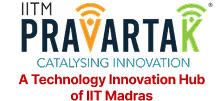

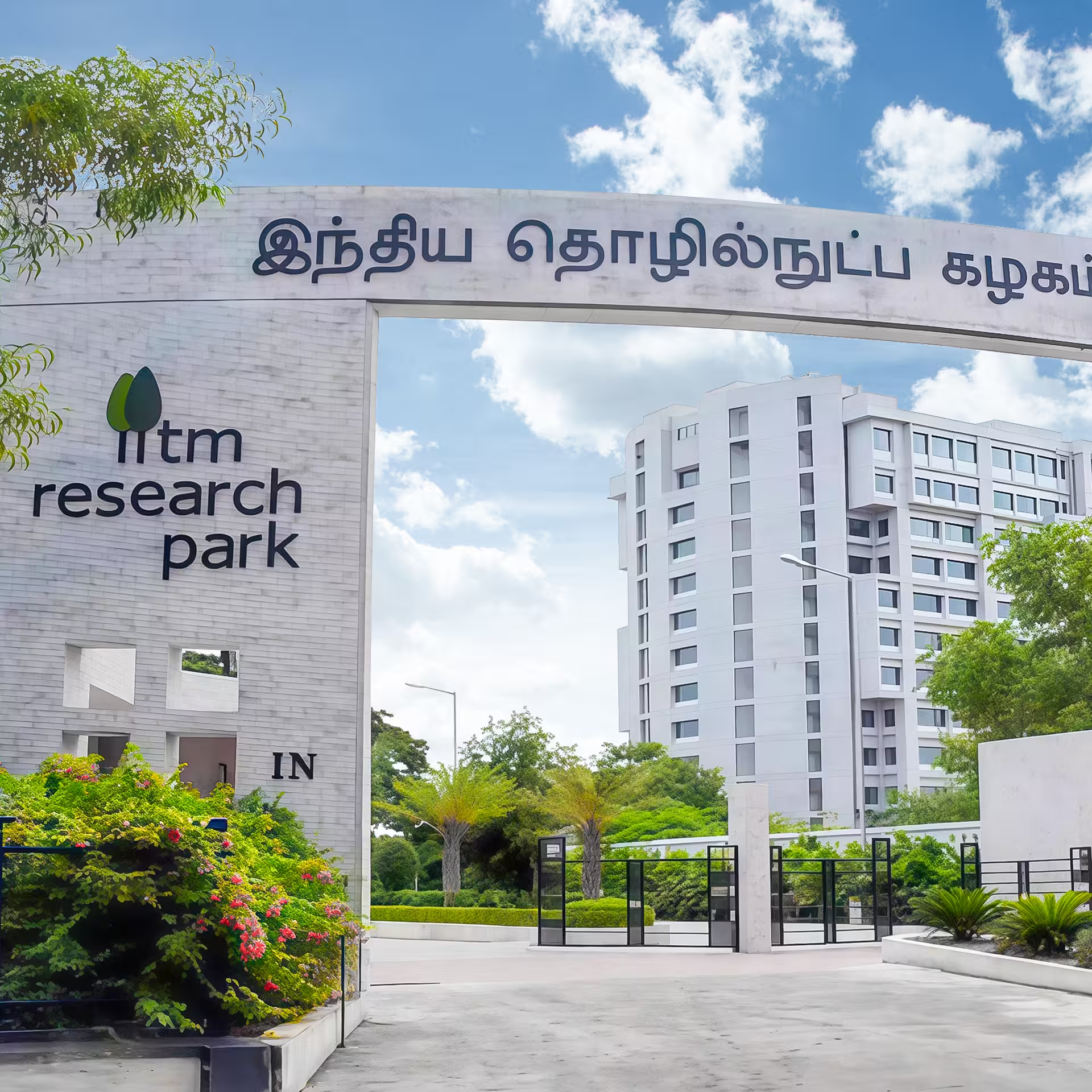
.avif)
